‘Our Brand Is Crisis’ Film Review: A Half-Baked Hollywood Version of a Great Documentary
David Gordon Green's star-studded film is a middling comedy about the humdrum conflicts between American meddlers in Bolivia's 2002 election Meanwhile, the Bolivians in it are as invisible as most of the slaves in "Gone With the Wind"David Gordon Green's star-studded film is a middling comedy about the internecine conflicts between American meddlers in Bolivia's 2002 election".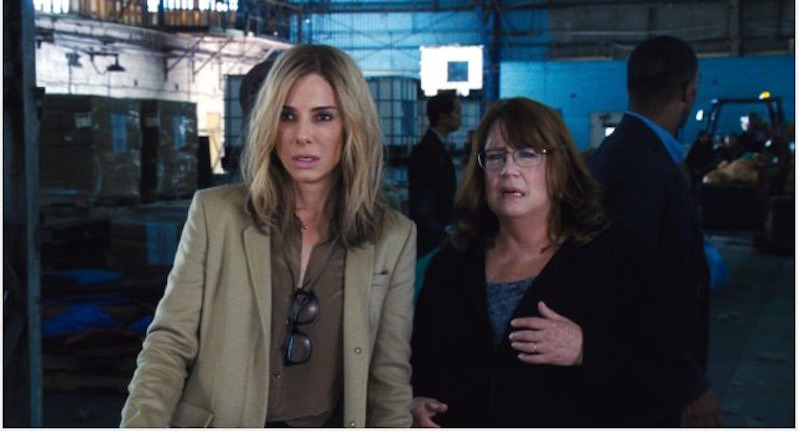 Still image from IMDb
Still image from IMDb
Still image from IMDb
To understand the wishy-washy, mealy-mouthed, half-baked nature of David Gordon Green’s “Our Brand Is Crisis,” look no further than the weasel words attached to its screenplay credit: “Suggested by the documentary by Rachel Boynton.”
Boynton’s 2005 film about the 2002 Bolivian presidential election was a beady-eyed examination of the work done by the American political strategy firm Carville Greenberg Shrum to ensure the election of Gonzalo Sánchez de Lozada, an American-raised Bolivian politician whose lousy Spanish had earned him the contemptuous nickname “El Gringo” among his fellow citizens. His opponent was the cocalero and union leader Evo Morales, who would finally be elected to the presidency in 2006 — the first indigenous politician to gain power in the tiny and deeply impoverished nation atop the Andes.
Boynton’s movie cast a suspicious and skeptical eye on the way the GCS team parachuted into Bolivia — most of them unable to speak Spanish, none of them particularly interested in a Bolivian citizenry that was deeply mired in poverty — to promote a narrative that there was a crisis and that Lozada was the man to tackle it. That team was a depressing roll call of Clinton-era fixers, movers and shakers: Tad Devine; Jeremy Rosner; Bob Shrum; pollster Stan Greenberg; and the Ragin’ Cajun himself, James Carville. They were all the too-familiar mouthpieces and spin-cycle hacks who turn up on “Hardball” and “Wolf Blitzer” whenever a Clinton is in the news or in the shit. Members of the GCS team had also previously lent their political skills to such figures as Ehud Barak in Israel and Tony Blair’s “New” Labour Party in the United Kingdom.
Boynton’s film is a kind of black shadow doppelgänger to the documentary “The War Room,” which detailed Bill Clinton’s successful 1992 campaign, in which the phrase most analogous to “Our brand is crisis” was, of course, “It’s the economy, stupid.” But what seemed inspiring about “The War Room” becomes merely depressing in “Our Brand Is Crisis.”
Perhaps that is because the GCS team’s involvement in the Bolivian election harks back to the United States’ many disastrous — and often plain evil — interventions in the politics of South and Central America: the Guatemalan coup of 1954 to preserve the primacy of the United Fruit Co. against President Jacobo Arbenz; the half-century-long embargo on Castro’s Cuba and the murder of Che Guevara in Bolivia in 1967; the monstrous overthrow of the democratically elected Chilean President Salvador Allende, his replacement by the fascist Gen. Augusto Pinochet and the country’s conversion into an economic laboratory for what Naomi Klein calls “the shock doctrine”; the de facto support of Pinochet look-alikes Jorge Rafael Videla and Leopoldo Galtieri in Argentina in the same period; all the vile and murderous shenanigans of the Reagan administration in El Salvador, Honduras and Nicaragua in the 1980s; and the long-term harassment of Venezuela’s Hugo Chavez.
With that legacy of violence and exploitation, it’s not hard to imagine why South and Central Americans are profoundly skeptical about the intercession of Americans in their politics and economies. Boynton’s documentary kept all of this in mind, and her perspective was closely tied to that of the losers in the 2002 election, whereas Green’s fictionalized version is an accidental illustration of the maxim that war — in this case political warfare — “is just God’s way of teaching Americans geography.” The Americans are the central figures, and the election is merely a backdrop against which they work out their own personal crises and exorcise their inner demons. The Bolivians are about as interesting, as visible and as real to the visiting gringos in the film as the slaves are to the white characters in “Gone With the Wind.”
Gringa Numero Uno is political strategist “Calamity Jane” Bodine (Sandra Bullock), who is chivvied out of retirement in Vermont — some disgraceful incident in her past has traumatized her and led to a six-month sojourn in the booby hatch — to climb aboard the campaign for Castillo (the fictional Lozada, played by Portuguese actor Joaquim de Almeida). Bodine’s interest is only piqued when she learns that Castillo’s opponent’s chief strategist is her longtime personal and career nemesis Pat Candy, plainly based upon James Carville and played with silky-smooth Arkansan menace by a bald Billy Bob Thornton. In other words, the hell with Bolivia, just let me get even with this mofo. (One is reminded of Dr. Melfi’s horrified inquiry of Tony Soprano: “How many more people have to die for your personal growth?”)
With 100 days till election day, Bodine and her team of Ugly Americans — they are weirdly analogous to American military “advisers” in Vietnam — assemble in La Paz, with Bodine subject immediately to the elevated city’s altitude sickness, barfing into waste bins and barely able to function. Candy, it turns out, is ensconced in the hotel suite immediately opposite her own, and soon enough, the psychological games and cleverly confected instances of political and personal ratfucking are underway. From Rachel Boynton’s perspective, the Candy character would be on the side of leftist right and might, but here he’s just the villain — a doppelgänger look-alike villain opposite Bodine, to be sure, but certainly on the wrong team. But the politics of the election barely matter to the filmmakers. The contestants could be Nazi Cross-Dressers vs. Zombie Flat-Earthers, for all the nuance or detail we get about them. Instead of issues, we get what we always get from the U.S. cable-news political shout-fests: inside-baseball politics and the horse-racing oddsmaker’s mentality, larded with hoary, old campaign-trail quotes from figures as diverse as Lyndon B. Johnson (“I wanna hear him deny he’s a pig-fucker!”) and ex-London Mayor Ken Livingstone (“If voting changed anything, they’d abolish it”).
Castillo is a schlubby candidate, uninterested in “narratives” or manufactured issues, reluctant to get his hands dirty or to go down among the people. He has to be reminded to remove his gold cufflinks and roll up his shirtsleeves for public appearances, and he falls for every provocation thrown in his path. Candy arranges for someone to egg him in public, and Castillo goes nuts, punching his assailant to the ground in front of the cameras. Other tactics include: Bodine’s spuriously linking opponent Rivera (Louis Arcella) with fugitive Nazi war criminal Klaus Barbie, the erstwhile “Butcher of Lyon,” whose post-World War II life included a lengthy stint as chief torturer to Bolivian dictators of the ’60s and ’70s before his extradition to France to stand trial in the 1980s; and Candy’s exposure of one of Castillo’s many extramarital affairs. Sleazy fliers are distributed by both sides, false allegations circulated, slurs uttered, reputations defamed — all the Karl Rovean horror-show tactics of the Republican primaries exported, like garbage or nuclear waste, to a country entirely unused to these things.
But who cares, really? The real fight here is between Bodine and Candy, who circle and provoke each other relentlessly, trading in politely nasty little digs and undermining remarks, much of their mutual contempt derived from a previous mayoral campaign back in the States, during which one of them issued a false allegation about the supposed drug habits of Candy’s candidate’s daughter, who committed suicide as a result. Early on, when Candy notes remarks, “Youthful political idealism — you can never get that back,” you have to wonder whether he or Bodine has ever experienced any such feeling in their lives. At one point, Bodine gives a big, rousing political speech to her team and her candidate, a speech that I half-expected would end with Kissinger’s infamous words on Chile and Allende: “America won’t stand by and let a country go communist because of the irresponsibility of its own citizens.”
And anyway, this is a Sandra Bullock movie, so she can’t really be that evil, can she? Bullock is a likable actor, and the movie is tailored to the daffier side of her screen persona: She’s a klutz, she bumps into stuff, falls over a lot and throws up, but in the end, of course, she finds her moral center and acts accordingly. After the election is won, we catch a glimpse of the newly sworn-in Castillo sitting with the sharks of the International Monetary Fund as they dictate their stringent and economically ruinous terms — higher taxes, interest rates up to 18 percent, social spending slashed, etc. — in a scene reminiscent to me of the gangsters in “The Godfather: Part II” carving up Hyman Roth’s Cuba-shaped birthday cake in Havana — and Cuba itself along with it. Suddenly, and entirely implausibly, this is all too much for Calamity Jane, who throws in her lot with the downtrodden and abused. It makes no sense emotionally or narratively. It does not persuade. And it doesn’t much entertain either.
We can add “Our Brand Is Crisis” to the list of half-cooked, woolly-minded political thrillers and comedies that producer George Clooney and his partner Grant Heslov have foisted upon us in the last decade or so: “Good Night, and Good Luck,” “The Ides of March,” “The Men Who Stare at Goats,” “The Monuments Men” and the wildly overrated “Argo,” wannabe Oscar contenders that barely deserved Emmys. The most surprising thing about the screenplay is that it was written by Peter Straughan, one of the writers of the superb “Tinker Tailor Soldier Spy,” while David Gordon Green’s featureless, anonymous direction merely confirms that his entire career has been one crisp refutation of the auteur theory.
Their brand isn’t crisis — their brand is middlebrow, middle-of-the-road, entirely middling filmmaking of the third rank. Vote NO!
Your support matters…Independent journalism is under threat and overshadowed by heavily funded mainstream media.
You can help level the playing field. Become a member.
Your tax-deductible contribution keeps us digging beneath the headlines to give you thought-provoking, investigative reporting and analysis that unearths what's really happening- without compromise.
Give today to support our courageous, independent journalists.
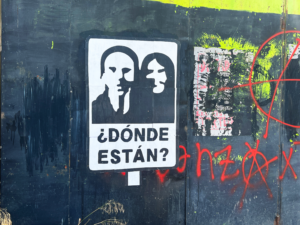

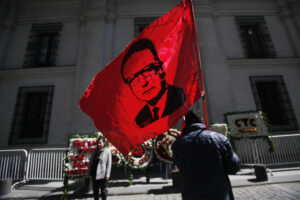
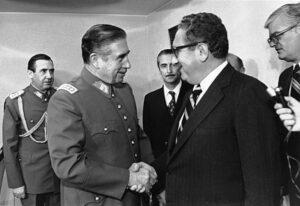
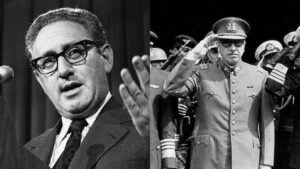
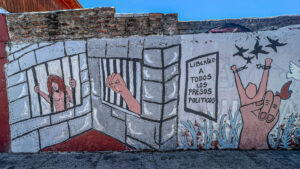
You need to be a supporter to comment.
There are currently no responses to this article.
Be the first to respond.